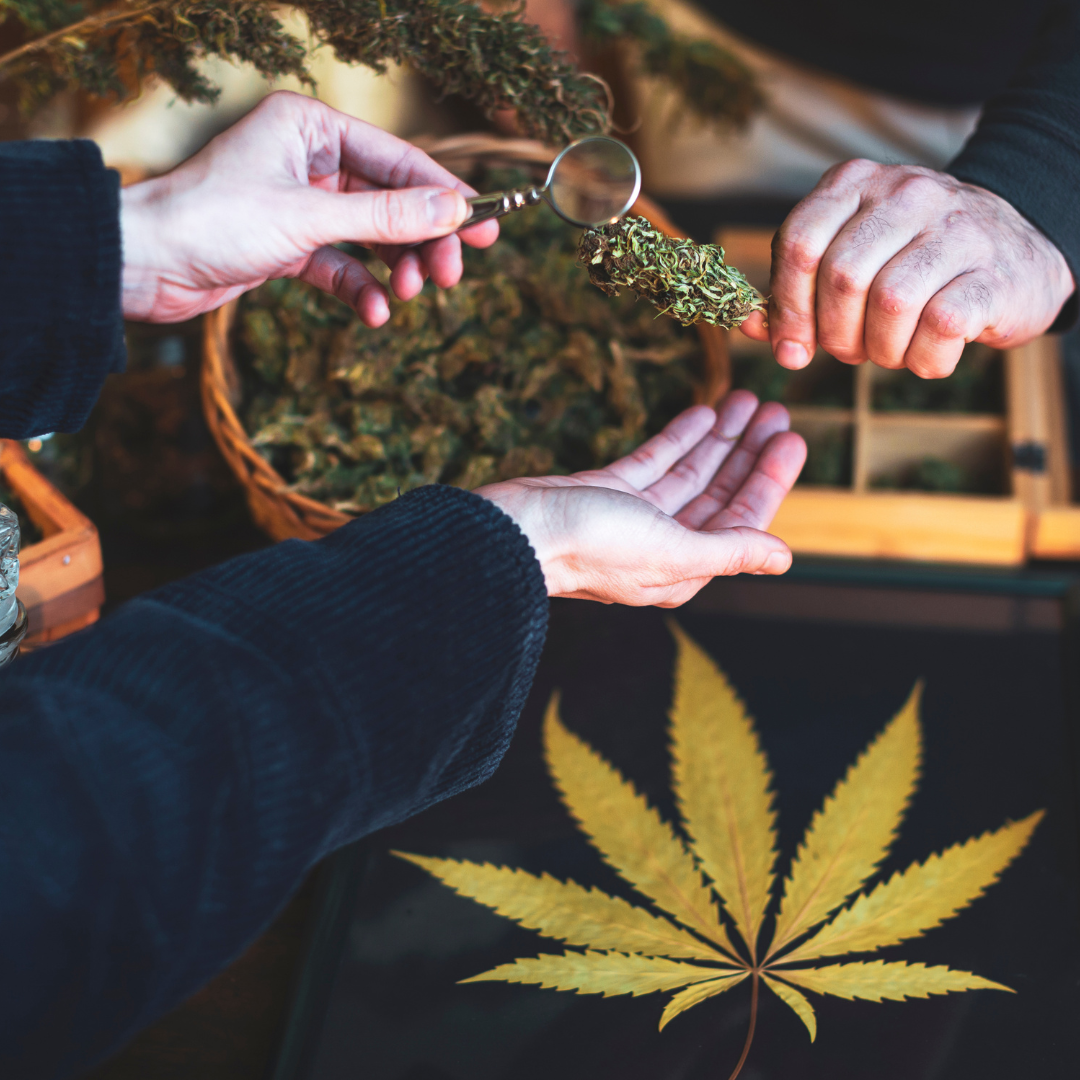 Following the legalization of recreational marijuana in California, demand has exploded for medical and recreational cannabis. Investors are flocking to marijuana stocks, and entrepreneurs see a huge opportunity. California is the biggest market in the U.S., so how do you compete, and what do you need to know about winning a California cannabis license?
Following the legalization of recreational marijuana in California, demand has exploded for medical and recreational cannabis. Investors are flocking to marijuana stocks, and entrepreneurs see a huge opportunity. California is the biggest market in the U.S., so how do you compete, and what do you need to know about winning a California cannabis license?
How to get a dispensary license in California?
Obtaining a dispensary license in California involves a multi-step process requiring compliance with local and state regulations. However, please note that the specifics of the process may have changed since then, so it’s essential to verify the current requirements and procedures. Here is a general overview of the steps you might need to take to get a dispensary license in California:
- Research and Planning: Before you begin the application process, thoroughly research the local regulations and requirements of the city or county where you intend to open your dispensary. Each jurisdiction may have zoning laws, operational restrictions, and licensing procedures.
- Establish a Business Entity: Create a legal business entity (such as a corporation, LLC, or partnership) for your dispensary. Consult with legal and financial professionals to ensure you choose the proper structure for your business.
- Find a Suitable Location: Identify a location for your dispensary that meets local zoning requirements and complies with state regulations. Ensure that the property is correctly zoned for cannabis-related activities.
- Obtain Local Approval: Submit an application for a local cannabis business license or permit under the regulations of your chosen jurisdiction. This may involve providing detailed business plans, security measures, operational protocols, and other information. Obtain any necessary approvals from local authorities.
- Develop a Comprehensive Business Plan: Create a detailed business plan that outlines your dispensary’s operations, staffing, security measures, marketing strategies, and financial projections. This plan will be an essential part of your application process.
- Apply for a State License: Once you have obtained local approval, you can apply for a state dispensary license through the California Department of Cannabis Control (DCC). The application process may include background checks, financial disclosure, operational plans, security measures, and other requirements.
- Complete Background Checks: You and any other individuals associated with the dispensary will likely need background checks as part of the application process. This ensures that all key personnel meets the legal and regulatory requirements.
- Obtain Necessary Permits: Besides the dispensary license, you may need to obtain other permits, such as a seller’s permit and health department approvals, depending on your specific location and business activities.
- Build Out and Compliance: Once you receive your license, you can proceed with building out your dispensary location and ensuring that it meets all regulatory requirements for security, signage, product storage, and customer safety.
- Hire and Train Staff: Recruit and hire staff knowledgeable about cannabis products, regulations, and customer service. Provide training to ensure compliance with state laws and best practices.
IMPORTANT: California has a dual licensing system; local & state approval is needed for licensing
- Local Licensing: Local jurisdictions, such as cities and counties, can establish their regulations regarding cannabis cultivation, distribution, retail, and other related activities. A cannabis business must obtain a local license or permit from the relevant city or county government before applying for a state license.
Local regulations vary widely, including zoning restrictions, operational requirements, security protocols, etc. Some localities may choose to ban certain types of cannabis businesses altogether. Cannabis entrepreneurs must research and understand the specific needs and regulations of the jurisdiction they intend to operate.
- State Licensing: Once a cannabis business obtains the necessary local license, it can apply for a state license from the California Department of Cannabis Control (DCC) or the appropriate state agency responsible for regulating cannabis. The state license must ensure compliance with statewide regulations, including product safety, testing standards, labeling requirements, and distribution protocols.
The state license application process involves the following:
- Demonstrating compliance with state regulations.
- Undergoing background checks.
- Submitting detailed operational plans.
- Meeting various other criteria set by the state.
Different types of licenses are available, including cultivation, manufacturing, distribution, retail, and testing.
**It’s important to note that the process and requirements for obtaining a dispensary license can vary significantly depending on the jurisdiction.**
California dispensary license application process
The California dispensary license application process involves several steps and requires compliance with both local and state regulations. However, please keep in mind that the specifics of the process may have evolved since then. Here’s a general outline of the California dispensary license application process:
- Research and Preparation:
- Research the regulations and requirements for obtaining a dispensary license in the specific city or county where you intend to operate.
- Understand the local zoning and land use regulations for cannabis businesses.
- Develop a comprehensive business plan that outlines your dispensary’s operations, staffing, security measures, and financial projections.
- Local Approval:
- Obtain a local cannabis business permit or license from the relevant city or county authorities. This often involves submitting detailed business plans, security plans, and operational procedures.
- Comply with any additional requirements the local jurisdiction imposes, such as zoning restrictions or community engagement.
- State License Application:
- Apply for a dispensary license from the California Department of Cannabis Control (DCC).
- Complete the required application forms, which may include information about your business structure, financial disclosures, background checks, and operational plans.
- Background Checks:
- Individual owners of the business will need to submit a background check as part of the application process.
- Operational Plans:
- Provide detailed plans for security measures, inventory control, product storage, employee training, record keeping, and compliance with state and local regulations.
- Financial Documentation:
- Submit financial information disclosing your source of funds to begin operations of the business.
- Application Fees:
- Pay the required application fees, depending on the license type and jurisdiction.
- Inspections:
- Local jurisdictions may require site inspections during the application review process. Inspectors will assess your facility’s compliance with security, health, and safety regulations.
- CEQA Compliance:
-
- Applicants must demonstrate compliance with the California Environmental Quality Act (CEQA). Check with the local jurisdiction regarding its process to obtain an exemption from or compliance with CEQA.
- Compliance and Approval:
- Demonstrate that your dispensary will fully comply with state and local regulations.
- Address any concerns or requests for additional information from regulatory authorities.
- License Issuance:
- If your application is approved, you will receive a dispensary license to operate legally in California.
For the most accurate and current information, I recommend visiting the official website of the California Department of Cannabis Control and the relevant local authorities responsible for cannabis licensing in your chosen jurisdiction.
What are the eligibility criteria for obtaining a dispensary license in California?
To be eligible for a dispensary license in California, applicants must meet various requirements, including being at least 21 years old, completing a thorough background check, and demonstrating compliance with local laws and regulations. Individuals with prior cannabis-related convictions may face additional scrutiny.
Can I operate a dispensary anywhere in California once I have a license?
No, you cannot operate a dispensary anywhere in California. Cannabis businesses, including dispensaries, are subject to local jurisdiction regulations. Each city or county has its own rules regarding cannabis operations. You must obtain local approval or authorization before applying for a state license.
How long does it take to get a dispensary license in California?
The time frame to obtain a dispensary license in California can vary significantly. It depends on factors such as the completeness of your application, the efficiency of the regulatory agency, and any potential challenges or delays during the approval process. It’s advisable to start the application process early and be prepared for a potentially lengthy waiting period.
Can I transfer my dispensary license to another person or location?
Transferring a dispensary license in California is possible, but it is subject to strict regulations. Any changes in ownership or location must be approved by the BCC. You need to submit a formal request and provide detailed information about the proposed changes. The approval process for transfers can take time, so it’s essential to plan ahead.
What are the key documents required for a dispensary license application?
The key documents required for a dispensary license application in California typically include a detailed business plan, financial statements, security plans, proof of local approval, background checks for all involved parties, and a comprehensive description of your cannabis products and services. It’s crucial to provide accurate and complete information in your application.
Can I sell both recreational and medicinal cannabis in my dispensary?
Yes, you can sell both recreational (adult-use) and medicinal cannabis in your dispensary. However, you must obtain separate licenses for each category. Ensure that your dispensary complies with the specific regulations related to both recreational and medicinal cannabis sales.
What are the ongoing compliance requirements after obtaining a dispensary license?
After obtaining a dispensary license in California, you must adhere to various ongoing compliance requirements, including tracking and reporting all cannabis transactions, ensuring product safety and quality, maintaining proper security measures, and renewing your license as per the regulatory schedule. Regular inspections and audits may also be conducted to ensure compliance.
How we can help?
At Cannabis License Experts, we provide you with the guidance to plan your cannabis business, acquire funding, navigate the legal requirements, and acquire the appropriate cannabis license for your operations. As the California cannabis industry develops, more and more licensed producers will be needed to meet the demands of consumers.
Cannabis License Experts offers support from day one of starting your cannabis business, including strategic planning, floor plan preparation, site audits, SOPs, Preventive Control Plans (PCPs), and more.
Our Edibles Compliance division can provide you with a solid plan for your edibles business to help get your products on store shelves.
Contact us today to discover how we can license and legalize your cannabis business to meet federal or provincial regulations.


